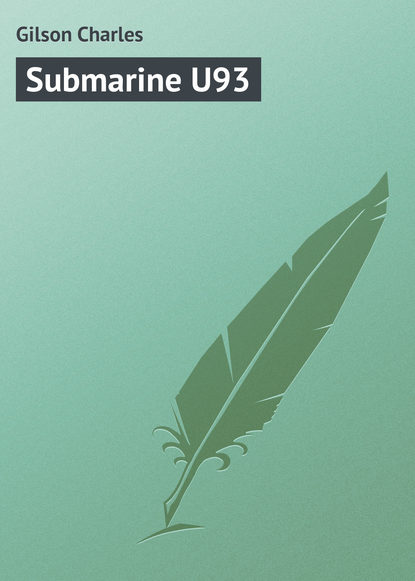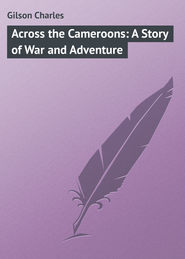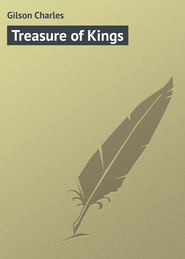По всем вопросам обращайтесь на: info@litportal.ru
(©) 2003-2025.
✖
Submarine U93
Настройки чтения
Размер шрифта
Высота строк
Поля
There was a dull thudding sound, as the full weight of a six-foot London policeman was hurled against the door.
"Try again," said the detective; "and this time all four of us together."
There was a pause, during which, no doubt, the detective and his companions gathered themselves together; and then, as one man, they threw themselves forward, so that four heavy shoulders struck the door a single blow.
The combined weight of these men could not have been less than fifty-four stone, at the very lowest estimate; and that is a shock that a modern spruce-wood doorway was never constructed to stand. Not only was the lock broken open, so that the woodwork of the jamb was splintered for at least a foot, but the hinges were wrenched bodily away. The outer door flung back with a crash, and a second later the detective and his men found themselves in the passage of the flat.
"Which room is it?" cried Etheridge. "Where are you?" he shouted at the full power of his lungs.
Crouch could not answer by word of mouth, but he could do just as well. Sitting as upright as he could, he spun round like a top, so that his two heels rapped out upon the door. Then he rolled over and over, until he had gained the security of the centre of the room.
It was Etheridge who spoke again.
"Here!" he cried. "This room! All together, as before!"
The inner door was forced even more easily than the first. As it fell inwards, and four burly figures burst into the room, both Crouch and Jimmy were blinded by the sudden glare of three policemen's lanterns. A moment later the gags were taken from their mouths, and they were free to speak.
"Who are you?" asked the detective, assisting the little sea-captain to his feet and unlocking his handcuffs.
"I'm the man who rang you up," said Crouch. "The rascals left here not twenty minutes ago. Had you come sooner, you would have bagged all three of them. As it is, there's no knowing where they've gone, nor whether we'll ever see them again."
There were a hundred things the detective wished to know. As yet he had been told nothing, beyond the fact that Captain Crouch had certain information in regard to a gang of spies. Together they went down to the first-floor flat, where they turned on the electric light, and where Crouch answered the detective's questions, telling his whole story in instalments, so to speak.
They had not a copy of the mysterious message which Jimmy Burke had found on board the "Harlech"; but this made no difference, since both Crouch and Jimmy knew it by heart. In order to explain to the detective how they had discovered the address in the Edgware Road, Jimmy went to the writing-table, and taking pen and ink, wrote out the message.
They explained to the detective how they had discovered the concealed address in the first and last letters of every word; and then they were able to see something of the peculiar workings of a great detective's mind.
In this world, there is reason in all things-even in those things which may seem most trivial and unimportant. The criminal investigator must not be satisfied with facts; it is his business to find out the why and wherefore of everything that comes in his way. Moreover, he must be observant; he can afford to miss nothing. As often as not, a clue is to be found in the most improbable place.
Superintendent-detective Etheridge had no sooner read the message a second time than he laid hold upon a clue.
"This message," said he, waving the paper in his hand, "was written by a man who does not know London well."
"How's that?" said Crouch. "As far as I can see, there's no way of telling who wrote it. It was picked up on board the ship that I commanded, that by all the laws of chance and methods of modern warfare should have been sent sky-high, to be no more than a ton or so of floating wreckage."
The detective preferred to hold to his own opinion; and it must be confessed that that opinion was likely to be right.
"It was written," he repeated, "by a man who does not know London well. Otherwise, he would have been able to spell 'Edgware Road.'"
Etheridge had now spread the paper upon the table, and both Crouch and Jimmy were gazing over his shoulder, whilst the three plain-clothes policemen stood together in the doorway.
"Edgware Road," the detective went on, "does not happen to be spelt with an 'e.' This cypher was evidently concocted by a man who-if not an Englishman himself-was well able to write-and, in all probability, speak-the English language. He was not, however, personally acquainted with London. For myself, in view of what you have told me, I should say that it was written by one of the German gang you discovered in New York."
"I have it!" cried the boy. "When I overheard the conversation that took place in Rosencrantz's office, I remember that von Essling himself said that, though he was well acquainted with the English language, he had never been to London, but expected to go there shortly."
Etheridge, who had produced a large note-book from his pocket in which he was scribbling a few hasty lines, closed it with a snap.
"That settles it," said he. "The Baron von Essling and this 'Mr. Valentine' who lives at the 'Hotel Magnificent' are one and the same person. I've no doubt of it whatever."
"What proof have you of that?" asked Captain Crouch.
"No proof," said the detective. "I set to work on bare suspicion, and leave proof to the last. In this case my suspicions are well founded. A few days before war was declared, a man, passing himself off as 'Lewis Valentine,' landed at Liverpool, having crossed from New York on the 'Olympic.' He is known to have stayed at the 'Hotel Magnificent,' and is supposed to have remained in London about three weeks. Afterwards, evidence was forthcoming to the effect that he was one of the Prussian military attachés in the United States, who was engaged upon Secret Service work. Two days ago rumours reached me that this man was once again in England; and the very reason I was late here to-night is that I was first obliged to go to the 'Magnificent,' where I learned that Valentine had left not an hour before. Take my word for it, this fellow is von Essling."
"And he has gone to Edinburgh?" asked Jimmy.
"Not a bit of it!" said Etheridge. "It is no more likely he would tell a charwoman his destination than his real name and business. He has gone to Liverpool; and that's all the more probable since the 'Baltic' sails early to-morrow morning."
"Thunder!" cried Crouch. "This is a greater game than big-game shooting in the Sunderbunds. I never in my life picked up a spoor like this."
"One thing's a certainty," said Etheridge; "I leave for Liverpool without delay. There's no fast train till morning; but I can get there in an eighty horse-power car. But, first, you must both come with me to the Admiralty. Jarvis," he added, turning to one of the policemen, "don't forget to drop into the White Star offices to-morrow morning, and tell them there's no fear this voyage that the 'Baltic' will be torpedoed."
CHAPTER XX-Commander Fells
For reasons which are usually described as having regard to the public interest, and also because of the Censorship in war-time, it is not possible to relate in any detail the interview that took place between Jimmy Burke and Captain Crouch and a certain Admiralty official, who may as well be called the Director-in-Chief of the Naval Secret Service.
This gentleman-by name Commander Fells-knew the superintendent-detective as well as any of his own immediate subordinates. Though it was by then past ten o'clock at night, they found him in his office, hard at work. Though he wore the uniform of a naval officer with the three gold stripes of his rank on either sleeve, his was the pale careworn face of a man who works at a desk-moreover, for long hours of the night.
Etheridge stayed no longer than was necessary to introduce Crouch and Jimmy, and to explain the important business upon which they desired to see Commander Fells. The detective then took his departure in haste on being told that the enormous Rolls-Royce car for which he had telephoned to Scotland Yard was waiting for him in Whitehall, outside the iron gates that guard the entrance of the Admiralty.
Alone with his visitors, the Commander lay back in his chair, and closing one eye, looked hard at Jimmy with the other. A little later, he twisted round sideways, so that his elbow rested on the back of the chair-a position that enabled him with comfort to bite the end of his thumb-a habit not to be encouraged in those who are still at school, but excusable no doubt (for the sake of Empire) in Commander Fells. A singular thing in this man, who was undoubtedly one of the powers-that-be in the Navy, was that he wore no medal ribbons on the left side of his coat, the sole decoration with which he had ever been honoured being the plain blue medal of the Royal Humane Society for saving life at sea.
There were a great many things he wanted to know. His method was quite different from that of the Scotland Yard detective who had cross-examined the two witnesses earlier in the evening. Whereas Etheridge asked an infinity of questions, the Commander simply requested Jimmy, and then Captain Crouch, to tell him all they knew. When he had heard both stories, had seen a copy of the cypher message, and turned up von Essling's name in a Prussian Court directory, he got to his feet and walked quickly out of the room. He returned in about an hour, saying that he had talked the matter out with an exceedingly high official (whom it would not be possible to mention). He asked a few more questions concerning Rosencrantz, and Rudolf Stork, and then turned to Crouch.
"You must understand," said he, "that in a matter like this absolute secrecy is necessary. From the moment you leave this building, you are not to breathe a single word of what you know to any one. For all that, we are exceedingly grateful for the information you and your young friend have brought."
"The Grand Fleet, sir, will be warned?" asked Crouch.
The Commander bowed his head.
"That has been done already," said he. "Five minutes after I left you-that is to say an hour ago-Sir John Jellicoe was made acquainted with the possibilities of the raid. Torpedo-boat-destroyers were warned to keep a sharp look-out for German submarines in the vicinity of the Well-bank light-ship. You say that this man Stork means to put to sea in a smack called the 'Marigold'?"
"That's so," said Crouch. "And if you have no objection, I should like to make a suggestion?"
"By all means," said the other.
"I may not look it," Crouch went on, "but I'm a sea-faring man by trade, though I have spent half my life knocking about on land. At one time-when I was little more than a boy-I went to sea on a trawler. I know the North Sea as well as any smacksman, and it so happens that the part I know best is this same Well-bank, where the U93 is supposed to be. And now, sir, here's the point; I've an old score to pay with Rudolf Stork; he's fooled me twice already, and if ever he does it again, this foot of mine's not cork. I know every fathom of the Dogger Bank, and I ask nothing better than leave to go to sea, and run down the 'Marigold.'"
"Good!" exclaimed the Commander, slapping Crouch on the back, "you shall have your wish and a 'permit' to see you through. It's hardly likely that we should stand in your way when you want to do no more than help us."
Though the one was an officer in the Royal Navy and the other no more than an honest merchant captain, there is-as we have said before-a kind of bond that binds all men together who learn to read the face of Nature in the changing aspects of the sea. As the oceans are wide and the seas many, so do all sailors who leave port under the red or the white ensign belong to a great brotherhood that lives one life, whether it be in ward-room, in gun-room, or in stokehold, that runs the same risks and faces the same cold and tragic death, for the honour and good name of that same old England that centuries ago ousted the Don from the Spanish Main and carried the British flag from Pole to Pole. There was this in common-though they never thought it-between Captain Crouch and Commander Fells, R.N.
It was long after midnight when Crouch and Jimmy Burke left the Admiralty. By then, they had received the most minute instructions as to what they were to do; they had also been supplied with a certain amount of money from the Secret Service funds, as well as a railway warrant and a roll of Admiralty charts.
Before daybreak they were travelling northward. In undisputed possession of a first-class carriage, they made themselves as comfortable as they could, and having been assured by the guard that he would wake them up before they reached their destination, they were soon fast asleep.
Captain Crouch was able to sleep like a dog. All his life he had been accustomed to drop off whenever he wished to, for an hour or so, or sometimes only for a few minutes at a time. It was probably because of this that he had retained well into middle age much of the vitality and enthusiasm of youth. In spite of the fact that his hair was touched with grey and inclined to thinness on the crown, in spite of all the hardships and privations he had undergone, Crouch, for all practical purposes, may be regarded as a young man. He now gave an exhibition of the extreme simplicity of going to sleep at will. He took off his coat-which he rolled round his white bowler hat-in order to make a pillow-wrapped himself in a tartan rug he had bought that afternoon, curled himself up like a hedgehog, wished Jimmy good-night, and a moment later was snoring like a pig.
Jimmy's case was altogether different. Young though he was, he found that on such an occasion as this sleep was no easy matter. Unlike the little sea-captain, his had not been a life of adventure and excitement. Never in his wildest dreams had he thought it possible that he personally would take part in so tremendous an undertaking.









